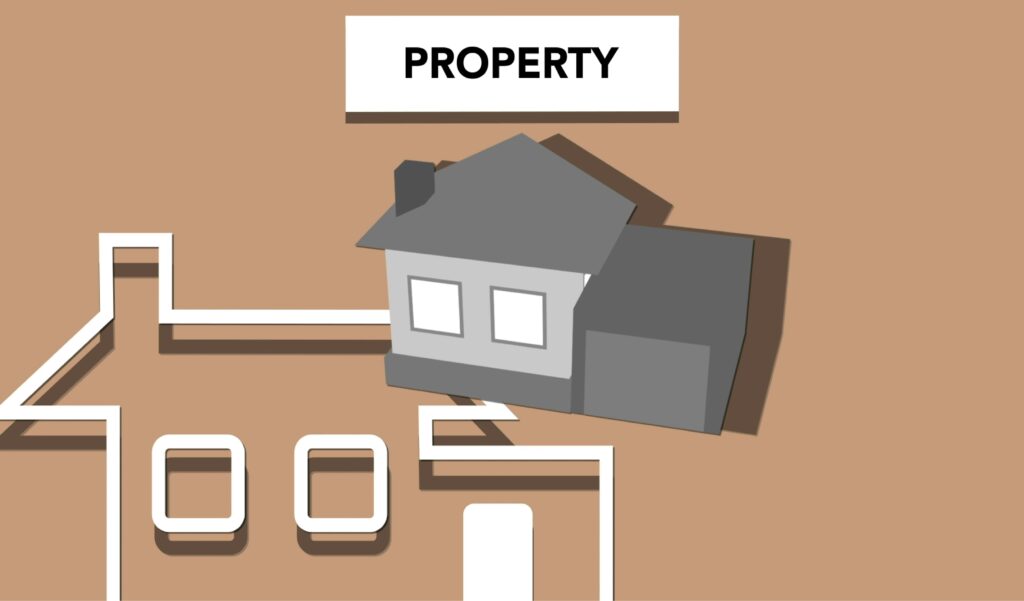
When people think about growing their money, stocks and mutual funds often take center stage. But for generations, there’s been another, often quieter route to building lasting financial value—owning and investing in property.
Whether it’s a family home, a rental apartment, or a commercial space, property offers something few other assets can match: long-term stability, the chance to earn consistent income, and the ability to grow your financial foundation over time.
This post explores how real estate can become a powerful tool in your journey toward financial growth—one that’s not just about buying and selling, but about creating a lifestyle rooted in security, passive income, and long-term rewards.
Why Property Stands Out in the Investment World
Let’s start with the basics:
owning land or buildings isn’t a new idea. It’s one of the oldest and most trusted ways to grow wealth. That’s because property is a tangible asset. Unlike digital currencies or volatile stocks, you can walk through a home, renovate a building, or rent out a space. It’s real—and that brings a sense of control and security.
More importantly, demand for living and working space never disappears. People always need homes, and businesses always need locations. That consistent demand makes property one of the most reliable investments around.
You Don’t Need Millions to Begin

One of the biggest myths is that you need to be rich to invest in property. While it’s true that purchasing land or homes requires more upfront than some other investments, there are many ways to get started without breaking the bank.
In many areas, government programs and first-time buyer incentives offer lower down payments or reduced interest rates. And even in higher-cost regions, investors can begin small—with a modest apartment or a shared home.
Starting small doesn’t mean starting slow. A well-chosen starter property can generate rental income, appreciate over time, and open the door to future opportunities.
Steady Income You Can Count On
Imagine getting paid month after month—without clocking into a job. That’s what rental income can do when you own a home or apartment and lease it to tenants.
Once the rent covers the mortgage, maintenance, and taxes, any extra becomes passive income.
You can use that money to:
- Pay off debt faster
- Build emergency savings
- Invest in a second property
- Fund your retirement goals
Better yet, property gives you flexibility. You can rent it long-term, short-term, or even use part of it for your own business. That kind of control is hard to find in other types of investments.
Building Value While You Sleep

One of the most powerful financial concepts is equity—the portion of your property that you truly own. With each mortgage payment, your equity increases. Over time, this builds into a form of wealth that’s quietly growing in the background.
Plus, property values often increase. This trend, known as appreciation, means the longer you hold on to a property, the more it may be worth. In a strong market, this growth can be significant—and it requires no extra work on your part.
That’s the beauty of real estate: it can grow in value while providing income at the same time.
Using Leverage to Multiply Your Gains
Here’s another advantage that few talk about—leverage. In property, you can use borrowed money (like a mortgage) to buy an asset worth much more than your initial investment.
Let’s say you put down ₹10 lakhs on a ₹50 lakh home. You control the entire asset and earn appreciation and rental income based on the ₹50 lakhs, not just your own investment. That’s powerful. It means your returns are amplified—something that’s hard to replicate in the stock market.
Of course, leverage comes with risk, especially if the rental income doesn’t cover expenses. But with careful planning and budgeting, it can be a smart way to grow your property portfolio over time.
Property Brings More Than Just Profits
Owning property isn’t just about money. It offers a sense of pride, control, and independence. You’re not just renting someone else’s space or relying on the decisions of a company CEO—you’re building something you can see, touch, and manage yourself.
And beyond financial benefits, property also provides life flexibility. You can move in, rent it out, renovate, or pass it on to family. Few other investments offer this level of versatility.
Mistakes to Avoid on the Journey

Of course, real estate isn’t without challenges. Like any investment, it requires research, planning, and a long-term mindset. Here are some common pitfalls to watch out for:
- Buying without research: Just because a place looks good doesn’t mean it will bring returns. Study the area, rental demand, and future growth potential.
- Overestimating income: Factor in vacancies, maintenance, and repair costs when calculating profits.
- Neglecting upkeep: A well-maintained property attracts better tenants and higher rents.
- Going in without a plan: Define your goals—monthly income, long-term appreciation, or retirement security—and build your strategy accordingly.
A Real-World Example
Let’s look at Meera, a graphic designer from Ahmedabad. At 30, she bought a small 1BHK flat using her savings and a government-subsidized home loan. She lived in it for two years, then rented it out when she moved closer to work.
The rent covered her loan EMI, and within five years, the flat appreciated significantly. She refinanced it and used the equity to buy a second flat in a fast-growing neighborhood. Now 38, she owns two properties that generate monthly income—and she’s planning her third purchase.
Meera’s journey wasn’t flashy. She didn’t flip homes or strike it rich overnight. But she made smart decisions, stayed patient, and built her own path to financial stability.
Getting Started Today
If you’re ready to take the first step, here’s how to begin:
- Educate yourself – Read blogs, watch videos, and learn the basics of real estate investing.
- Check your finances – Understand your credit score, savings, and borrowing capacity.
- Explore your market – Look for neighborhoods with growth potential, solid infrastructure, and rental demand.
- Set clear goals – Are you aiming for passive income, capital growth, or long-term security?
- Talk to professionals – A trusted real estate agent, banker, or advisor can guide you.
Remember: you don’t have to do everything at once. Just take one smart step at a time.
Final Thoughts

Real estate offers more than bricks and mortar—it offers opportunity. With the right mindset and strategy, property can become the cornerstone of a more secure, independent, and financially free future.
You don’t need to be a millionaire. You don’t need to own ten homes. You just need to start.
Because when you do, you’re not just investing in a building—you’re investing in your own future.
